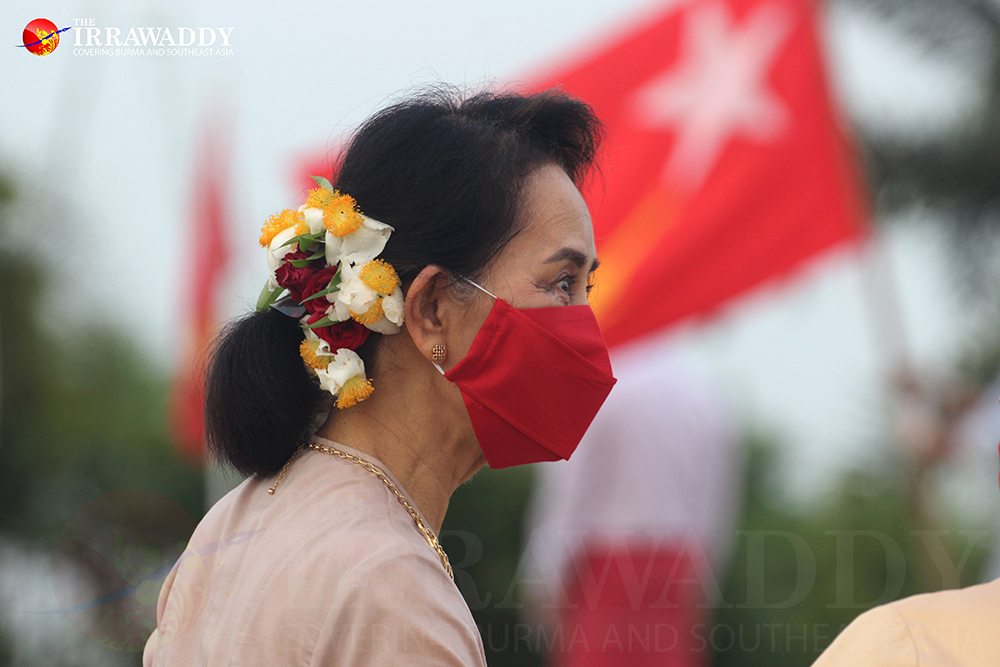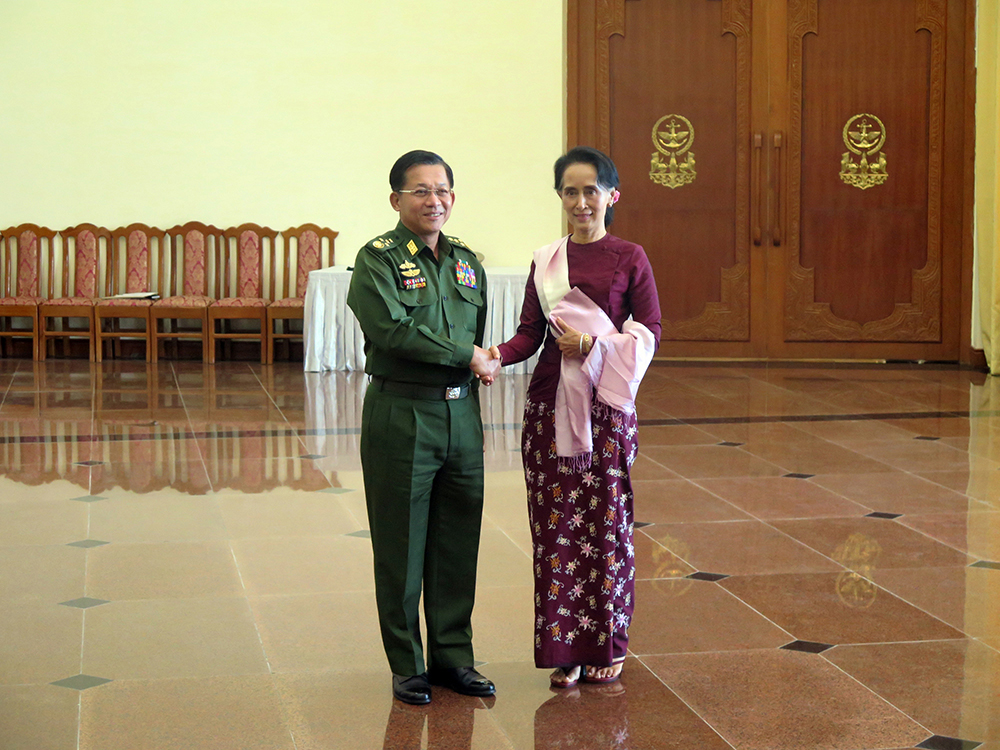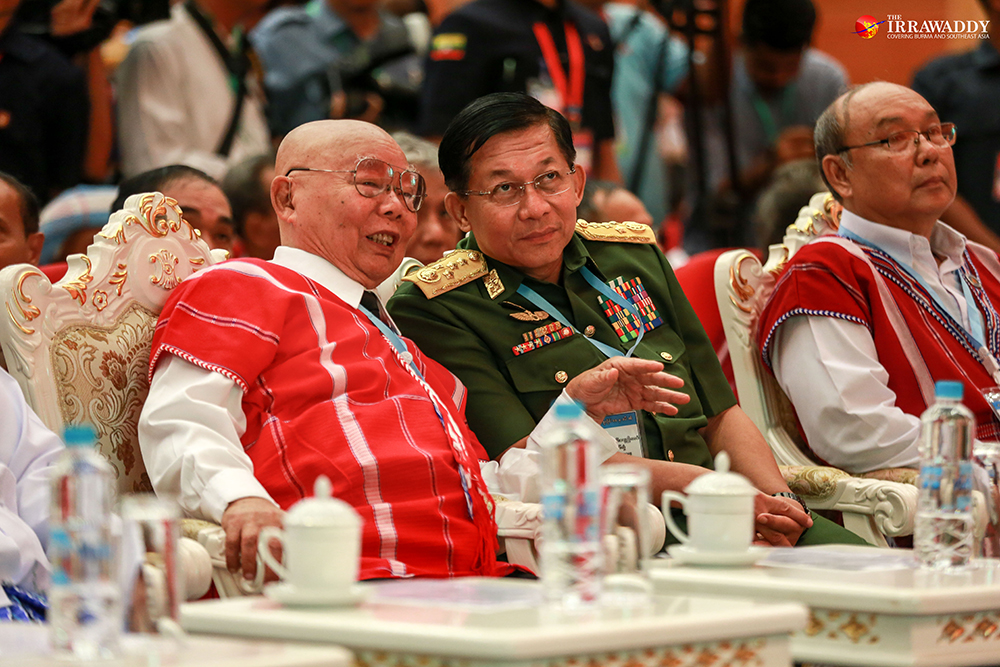We are deep into the election season. Soothsayers at home and abroad are offering a steady stream of predictions for the outcome. Will Myanmar’s election be free and fair? Who will win?
First, it will come as no surprise if the ruling National League for Democracy (NLD) returns to power and forms a government. In any corner of the world where people have lived under a repressive regime, it’s a fairly safe bet that a popular elected government will cruise to a second term.
Second, in Myanmar, the real question isn’t whether the NLD will win or lose, but whether it can repeat its landslide victory of 2015. NLD supporters obviously hope so, but many observers doubt that a landslide win is in the cards this time.
The NLD’s top leaders expect to win 57 per cent of the votes nationwide, and that the party will be able to form a government on its own. In Burman-dominated regions, the NLD is likely to win many more votes. People are less fearful than they were in 2015, and are no longer afraid of the shadow of the military dictators. It is likely that the NLD will remain the dominant political party after the election. In the ethnic states, some ethnic parties should do well, particularly in Shan, Kachin and Rakhine, and it is likely that we will see more ethnic representatives in the state and regional parliaments.
In spite of the COVID-19 spike in the country, we have seen a “Red Sea” of NLD flags and T-shirts in many villages and towns. This is a sure indication that the NLD will win votes in Burman-majority regions.

Despite calls to postpone the election due to COVID-19, the vote will proceed on Nov. 8. Early voting has already begun, and Myanmar State Counselor Daw Aung San Suu Kyi and President U Win Myint are among those who have voted, casting their ballots in Naypyitaw.
Daw Aung San Suu Kyi remains immensely popular in Myanmar—this is simply a fact, though she is not well liked among the military’s top brass and some ethnic leaders. The country will remain polarized along this political fault line.
Though she remains popular, Daw Aung San Suu Kyi faces some challenges. If the NLD wins again, who will be president? Under the 2008 Constitution, she can’t become president—this is old news. The NLD led an effort to amend the Constitution in 2019 but failed, as the military, for whom 25 percent of seats in Parliament are reserved, blocked the proposed changes.
Myanmar had two presidents during the NLD government’s first term. Both of these men, former President U Htin Kyaw and the incumbent, U Win Myint, are loyal supporters of Daw Aung San Suu Kyi—and both have effectively been missing in action. This reflects the State Counselor’s assertion during the 2015 election campaign that she would be “above the president” if her party won. She has lived up to this promise. Both U Htin Kyaw and U Win Myint have been regarded as ceremonial figures. In fact, according to the 2008 Constitution, the president wields full executive power, but under the NLD government, Daw Aung San Suu Kyi calls the shots.
If the State Counselor expects her party to win again (and she does), then she will have to propose a new president. Moreover, it remains to be seen whether she will retain the State Counselor position or relinquish it. The State Counselor post was created in April 2016 by the NLD administration to allow Daw Aung San Suu Kyi to play an executive role in the Union government. From the beginning, the military MPs sitting in Parliament strongly protested the creation of the position.
In addition to being State Counselor, Daw Aung San Suu Kyi still holds several ministerial positions including the Foreign Ministry portfolio.

If she is re-elected, she will be a member of Parliament. If she wishes, she could still become Parliament speaker. But at the age of 75, it is doubtful she will be able to perform this duty. Reports early this year suggested that Daw Aung San Suu Kyi was thinking of resuming her party leadership role as NLD chair. It will be interesting to see whether she does so; the military would be happy to say farewell to her.
Indeed, if Daw Aung San Suu Kyi is preparing to make way for a new generation of leaders, she will have to strengthen the NLD’s organizational structure and institutional development—so far, the party lacks both. At the moment, it has a charismatic leader and her entourage, but little else.
Daw Aung San Suu Kyi also wants to devote more time to her Daw Khin Kyi Foundation. Named after the State Counselor’s late mother Daw Khin Kyi, the non-profit organization was established in 2012 to promote health and education. But the question is, can she afford to give up her executive position in the government during this period of democratic transition?
The military
The Myanmar military is guaranteed 25 per cent of seats in Parliament—a state of affairs that makes the transition to democracy all the more difficult. It also controls three ministries: Defense, Border Affairs and Home Affairs. For the foreseeable future, the military will continue to play a role in national politics. The military leaders say they will protect the 2008 Constitution and argue that they will follow orders from the President, not the State Counselor.
Current commander-in-chief Senior General Min Aung Hlaing is due to retire in mid-2021, having served under former President U Thein Sein and the NLD government. His relations with the latter are poor.
Snr-Gen Min Aung Hlaing has expressed a desire to continue serving the nation and the public. This suggests he seeks an executive position in the next government. With the military occupying 25 percent of the Parliament, he could become vice president. But would he be content with that position?

Like Daw Aung San Suu Kyi, Snr-Gen Min Aung Hlaing will have to choose his successor. So the question here is, who will be the next commander-in -chief? An obvious candidate is the senior general’s current deputy, General Soe Win. But will it happen? Selecting the new commander-in-chief will be one of the tricky tasks awaiting the next government.
According to the Constitution, the president appoints the commander-in-chief following the proposal and approval of a candidate by the National Defense and Security Council (NDSC). Since coming to power in 2016, the NLD has not convened a single meeting of the NDSC.
If the NLD wins a majority in this election, it is expected that the vicious cycle will continue; no one expects the relationship between the military and the government to improve.
Thus, we are in for interesting times in the post-election period. If the new government and the military should surprise us by working together and achieving a breakthrough for the country, it would be a blessing. Such an outcome is doubtful, however.
You may also like these stories:
The Sinners Against Myanmar’s Elections
A Few Predictions for Myanmar’s Upcoming Election
Myanmar’s Election a Chance to End a Cycle of Man-Made Disasters
















